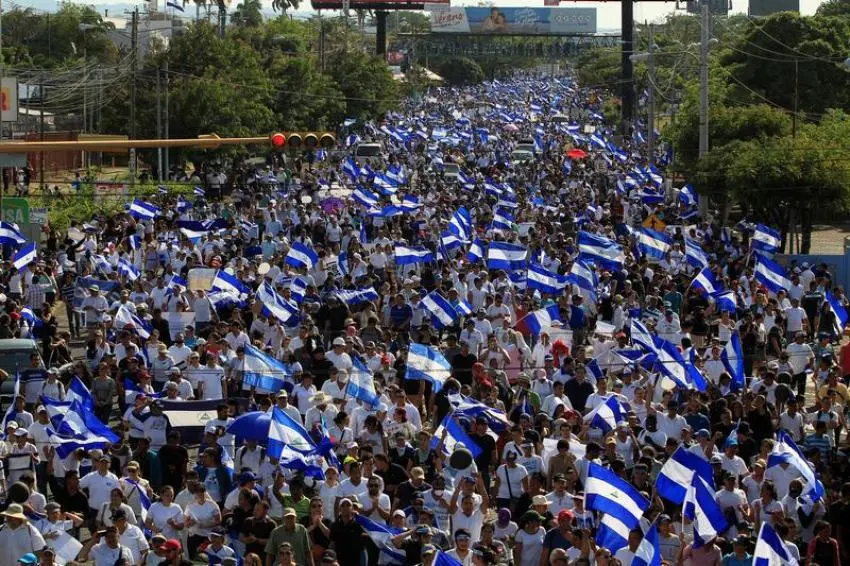
By: Clady Corona, 2L
It has been almost five years since Daniel Ortega, the President of Nicaragua and leader of the Sandinista National Labor Front party, announced changes to the country’s pension system that sparked protests and demonstrations. Since then, the country has largely remained under the radar while morphing further into an authoritarian regime. President Ortega’s tight grasp on the country’s political and economic systems is the result of a decades-long, methodical overhaul of the country’s legal and judicial institutions.
Ironically, this is the same Daniel Ortega that led the revolution to overthrow the Somoza dictatorship in 1979. After serving his first term in office between 1985-1990, President Ortega was unsuccessful in his re-election attempts until 2006. Although he wasn’t re-elected to the presidency until 2006, in 2000, his party orchestrated a “power-sharing” deal with the Liberal Constitutionalist Party to reduce the threshold for winning the presidency to 35%. The deal gave the Sandinista National Labor Front party, the opposition party at the time, power over half the appointments to the Supreme Court and Electoral Council. Then in 2010, the Sandinista-controlled Supreme Court changed the law to allow presidents to run in consecutive presidential elections. Nicaragua’s Congress similarly altered the Constitution in 2014 to remove term limits, allowing President Ortega to run for the presidency indefinitely. Two years later, on the eve of an election, the Supreme Court dismissed the main opposition party’s leader and replaced them with a leader with ties to President Ortega.
Such moves have facilitated President Ortega’s ability to hold on to the presidency and emboldened his repression of political opposition. For example, under a new law that overrides the Constitution’s ban on “denationalization,” Nicaragua banished 222 political prisoners to the United States and took away their citizenship. A Nicaraguan judge declared the prisoners traitors and, as such, removed them to “protect peace and national security.” The group included a wide variety of individuals who had spoken out against the government in some capacity, including two candidates that challenged Daniel Ortega in the 2021 election, Félix Maradiaga and Cristiana María Chamorro Barrios.
However, President Ortega’s willingness to repress dissidents isn’t restrained to those who directly challenge his authority but includes religious leaders such as Rolando Álvarez, a Catholic bishop sentenced to 26 years in prison after refusing to leave to the United States with the other denationalized prisoners. At the time, he was on house arrest awaiting his trial. But because the government revoked his citizenship, he had no constitutional rights and was immediately convicted and sentenced for “undermining the state, spreading false news, and resisting authority,” among other charges.
The international community has been steadfast in its disapproval and condemnation of President Ortega’s actions. Most recently, the United Nations declared the actions of President Ortega and Vice President Murillo, his wife, crimes against humanity. Time will tell whether, and to what extent if any, sanctions imposed by international organizations and foreign nations might discourage Ortega’s regime from perpetuating its repression of the Nicaraguan people. In either event, the last two decades in Nicaragua should serve as a staunch reminder of the importance of an independent and legitimate judiciary and law-making function.




